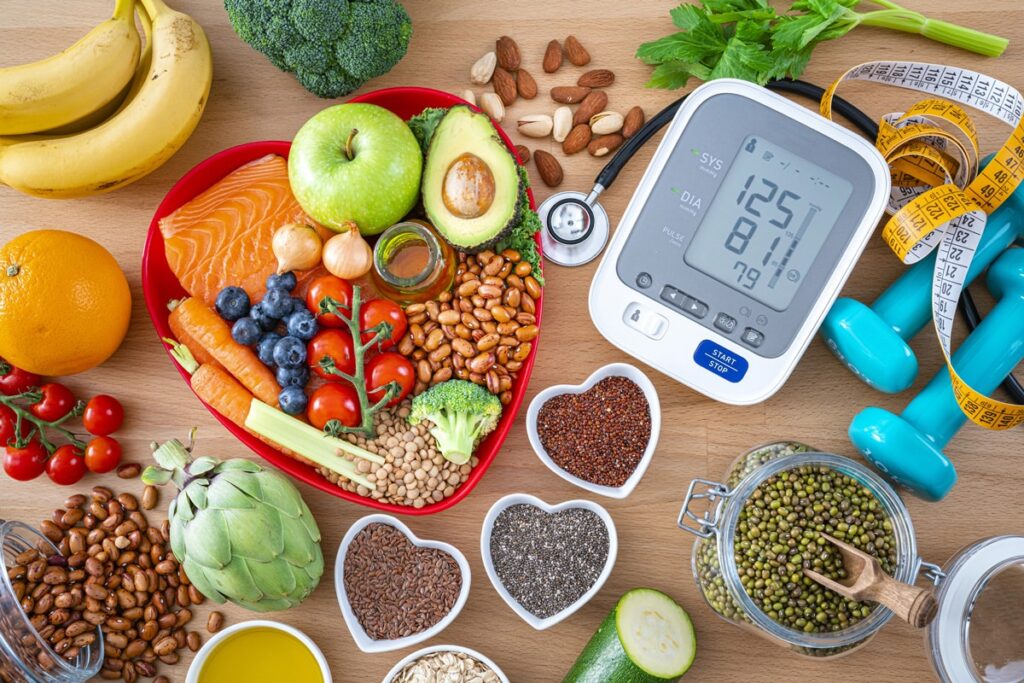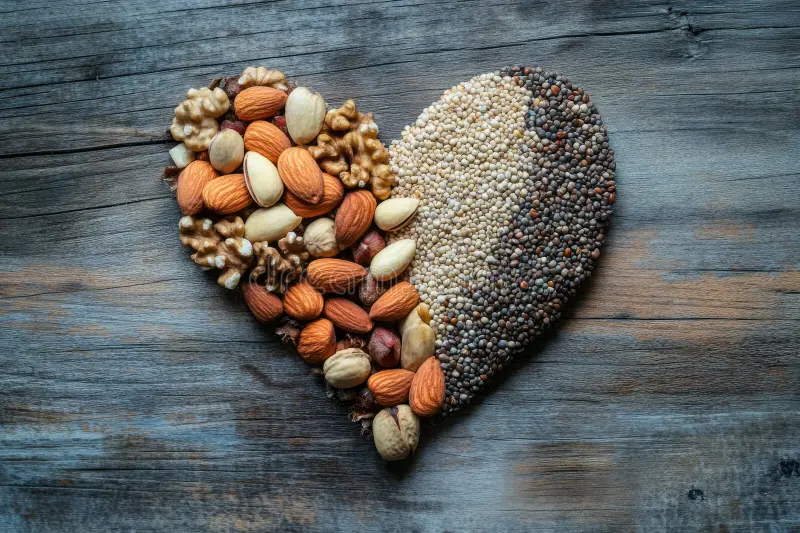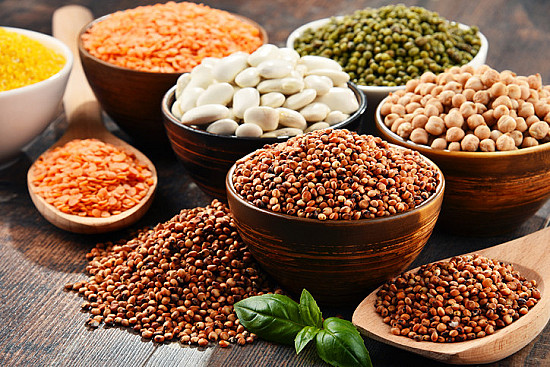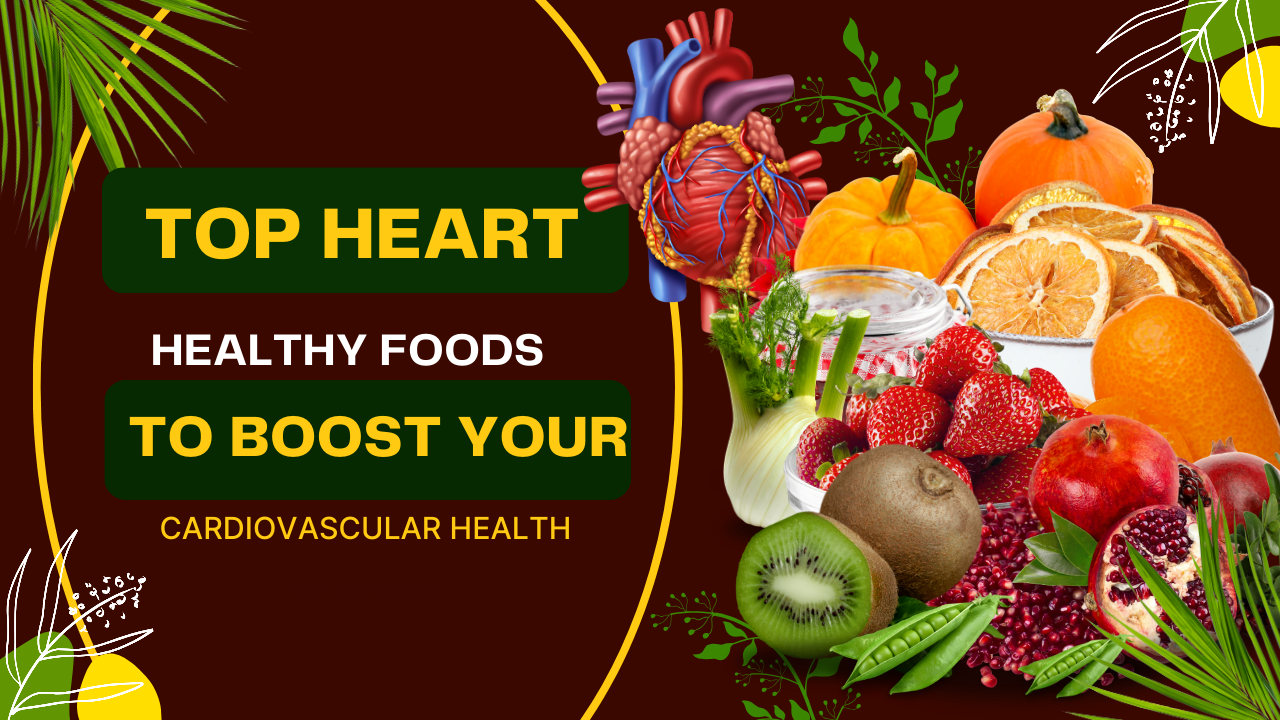The heart is one of the most important organs in the body, and taking care of it is essential for staying healthy. With the number of heart-related diseases increasing, it is more important than ever to focus on making better lifestyle choices. One simple yet powerful step is to eat the right foods. What you eat every day has a big impact on your heart, and choosing heart healthy foods can help reduce the risk of serious problems like high blood pressure, high cholesterol, and clogged arteries.
Heart healthy foods include fruits, vegetables, whole grains, nuts, and healthy fats such as those found in olive oil and fish. These foods are rich in nutrients that support your heart, like fiber, antioxidants, and omega-3 fatty acids. They help lower bad cholesterol, reduce inflammation, and improve blood flow. Making small changes to your diet, such as adding more fresh produce or cutting back on processed foods, can bring big benefits over time.
In this article, we will take a closer look at the best heart healthy foods you can include in your diet. These foods not only protect your heart but also boost overall well-being and help you live a longer, healthier life.

Understanding Heart Disease: A Growing Concern
Before exploring the foods that can improve heart health, it’s important to understand what leads to heart disease. Serious conditions such as coronary artery disease, heart attacks, strokes, and high blood pressure often develop over time but are largely preventable. Many of these health problems are linked to unhealthy lifestyle habits, especially poor diet. Eating processed or high-fat foods, smoking, avoiding physical activity, and drinking too much alcohol can all raise your risk. These habits can increase cholesterol levels, raise blood pressure, and cause inflammation—key factors that damage the heart and blood vessels.
According to the American Heart Association (AHA), nearly half of all adults in the United States are living with some form of cardiovascular disease. This number continues to grow, making heart health a major public concern. Although genetics can influence your risk, everyday choices—especially what you eat—have a powerful effect on your heart’s condition. That’s why learning about heart healthy foods and including them in your daily meals is so important.
Understanding which foods support your heart is a key step toward preventing disease and living a longer, healthier life.
What Makes a Food Heart-Healthy ?
Heart-healthy foods typically have specific attributes that make them good for cardiovascular health:
High in Nutrients, Low in Saturated Fats:
Heart healthy foods are packed with essential nutrients such as vitamins, minerals, and fiber, which are vital for overall wellness and heart function. These foods typically contain little to no unhealthy fats, especially saturated and trans fats. Reducing these harmful fats in your diet can help lower bad cholesterol levels (LDL), a key factor in preventing heart disease.
Anti-inflammatory Properties:
Chronic inflammation in the body is closely linked to the development of heart disease. Including heart healthy foods that have natural anti-inflammatory properties—such as leafy greens, berries, and whole grains—can help reduce the risk of plaque buildup in the arteries. This, in turn, lowers the chances of experiencing heart attacks or strokes.
Rich in Omega-3 Fatty Acids:
Omega-3 fatty acids, found in fatty fish, flaxseeds, and walnuts, are a vital part of heart healthy foods. These good fats help lower bad cholesterol while raising good cholesterol (HDL). They also help reduce inflammation and keep your arteries flexible, supporting better heart health.
Antioxidants:
Heart healthy foods like fruits and vegetables are full of antioxidants, which protect your body’s cells, including those in the heart, from damage caused by harmful molecules called free radicals. This protection helps prevent long-term heart problems.
Promote Healthy Blood Pressure:
Many heart healthy foods, especially those high in potassium and magnesium—like bananas, spinach, and beans—support healthy blood pressure levels. Keeping blood pressure in check helps reduce the risk of hypertension, a major cause of heart disease.

Best Heart Healthy Foods
Here are some of the best foods that you can include in your diet to promote heart health:
Fatty Fish: Salmon, Mackerel, Sardines, and Trout
Fatty fish are some of the best heart healthy foods you can eat, thanks to their high content of omega-3 fatty acids. These healthy fats are essential for maintaining a strong and healthy heart. Regularly eating fatty fish like salmon, mackerel, sardines, and tuna can have a big impact on heart health. Omega-3s are known to lower triglyceride levels in the blood, which helps reduce the risk of heart disease. They also help prevent blood clots by making the blood less sticky, which can lower the chances of heart attacks and strokes.
In addition to these benefits, omega-3 fatty acids found in fatty fish help reduce inflammation throughout the body, which is another major factor in heart disease. These healthy fats also increase the level of HDL (good) cholesterol, which works to remove LDL (bad) cholesterol from the bloodstream. By doing so, they help keep arteries clear and improve overall blood flow. Including fatty fish in your meals at least twice a week is a great step toward a healthier heart.
How to Include: Aim to eat at least two servings of fatty fish per week. Grilled salmon, mackerel, or sardines make a delicious and nutritious meal. You can also add them to salads or pasta dishes.
Nuts and Seeds: Almonds, Walnuts, Chia Seeds, and Flaxseeds
Nuts and seeds are excellent heart healthy foods that offer many benefits for your heart. They are rich in monounsaturated fats, which can help lower bad cholesterol levels and support good heart function. In addition, they contain fiber, which helps improve digestion and keeps cholesterol in check. These foods are also full of antioxidants that protect the heart from damage caused by harmful free radicals.
Walnuts stand out as a top source of plant-based omega-3 fatty acids, which help reduce inflammation and support healthy blood flow. Almonds and flaxseeds also play an important role in heart health. They are packed with fiber and plant-based proteins, both of which help maintain healthy blood pressure and support overall cardiovascular health. Adding a handful of nuts and seeds to your daily meals or snacks is a simple way to include more heart healthy foods in your diet. Just be sure to choose unsalted and raw or dry-roasted options for the best health benefits.

How to Include: A small handful of mixed nuts or seeds makes for a satisfying snack. Add them to smoothies, yogurt, oatmeal, or baked goods for an extra boost of heart-healthy fats.
Berries: Blueberries, Strawberries, Raspberries
Berries are a great example of heart healthy foods, offering many benefits for your heart. They are rich in powerful antioxidants like anthocyanins, which give berries their bright color and help protect the heart. These antioxidants play a key role in lowering inflammation and fighting oxidative stress, both of which can damage blood vessels and heart cells. By protecting these vital areas, berries help lower the risk of heart disease and support better heart function.
Another reason berries are considered excellent heart healthy foods is their low glycemic index. This means they do not cause a sudden rise in blood sugar levels, making them a smart option for people watching their heart and blood sugar health. Berries such as strawberries, blueberries, raspberries, and blackberries are also high in fiber and vitamins that contribute to overall wellness. Adding a handful of fresh or frozen berries to your meals or snacks is a tasty and easy way to improve your diet and support long-term heart health.
How to Include: Include fresh or frozen berries into your breakfast (like in oatmeal or smoothies), or enjoy them as a snack throughout the day.
Leafy Greens: Spinach, Kale, Collard Greens
Leafy greens are among the top heart healthy foods you can eat, packed with essential nutrients that support heart function. They are rich in potassium, which helps regulate blood pressure, and fiber, which aids in digestion and lowers cholesterol levels. These greens are also full of antioxidants, including vitamin K, which has anti-inflammatory properties and helps maintain healthy blood vessels. Including leafy greens like spinach, kale, and collard greens in your diet can go a long way in improving overall cardiovascular health.
In addition to these benefits, leafy greens contain folate, a B-vitamin that helps lower homocysteine levels in the blood. High homocysteine is linked to an increased risk of heart disease, so keeping it at healthy levels is important for preventing cardiovascular problems. With their nutrient-dense profile, leafy greens are an easy and effective way to add heart healthy foods to your meals. They can be enjoyed in salads, smoothies, or as cooked dishes to support a healthy heart and overall well-being.
How to Include: Add spinach or kale to salads, smoothies, soups, or stir-fries. You can also sauté them with olive oil and garlic for a delicious side dish.
Avocados
Avocados are a fantastic addition to any heart healthy foods list due to their high content of monounsaturated fats. These healthy fats help lower LDL (bad) cholesterol levels, which reduces the risk of heart disease. At the same time, avocados can maintain or even raise HDL (good) cholesterol, promoting better cardiovascular health. Their unique fat profile makes them a heart-healthy choice for anyone looking to improve heart function.
In addition to healthy fats, avocados are packed with potassium, a mineral that plays an important role in regulating blood pressure. Potassium helps balance the effects of sodium in the body, which can prevent high blood pressure, a leading risk factor for heart disease. By adding avocados to your diet, whether in salads, sandwiches, or smoothies, you can enjoy these heart healthy foods while supporting overall heart health and blood pressure management.
How to Include: Use avocados in salads, sandwiches, or as a spread for whole-grain toast. You can also blend them into smoothies for added creaminess.
Legumes: Lentils, Chickpeas, Black Beans
Legumes are excellent heart healthy foods that provide a powerful combination of plant-based protein and fiber. These nutrients support heart health in various ways. The fiber found in legumes helps lower cholesterol levels by binding to cholesterol and removing it from the body. This can reduce the risk of heart disease and improve overall cardiovascular function. Beans, lentils, and chickpeas are great sources of fiber, making them ideal choices for a heart-healthy diet.
In addition to fiber, legumes offer plant-based proteins that can replace animal proteins in your diet. Unlike animal proteins, which are often high in saturated fats, plant proteins are lower in unhealthy fats, making them a better option for maintaining healthy cholesterol levels and reducing the risk of heart disease. Including legumes like beans, lentils, and peas in your meals regularly is an easy and delicious way to add heart healthy foods to your diet while supporting overall heart health.

How to Include: Add legumes to soups, salads, stews, or use them as the base for veggie burgers or dips like hummus.
Whole Grains: Oats, Brown Rice, Quinoa, Barley
Whole grains are among the top heart healthy foods, packed with essential nutrients like fiber, B-vitamins, and minerals. The fiber in whole grains plays a key role in lowering LDL (bad) cholesterol levels, which is crucial for reducing the risk of heart disease. Additionally, whole grains help regulate blood sugar levels, making them an important part of a heart-healthy diet, especially for those looking to prevent cardiovascular problems.
In addition to lowering cholesterol and stabilizing blood sugar, the fiber in whole grains also supports healthy digestion and reduces the risk of high blood pressure. Whole grains like oats, brown rice, quinoa, and whole wheat are excellent choices for anyone looking to boost heart health. By replacing refined grains with whole grains in your meals, you can enjoy a variety of heart healthy foods that support overall well-being and contribute to better cardiovascular health.
How to Include: Start your day with a bowl of oatmeal, use brown rice or quinoa as a base for your meals, or add barley to soups and stews.
Olive Oil
Olive oil is one of the most heart healthy foods, particularly prominent in the Mediterranean diet, known for its many cardiovascular benefits. Rich in monounsaturated fats, olive oil helps lower LDL (bad) cholesterol while maintaining or even raising HDL (good) cholesterol. This helps improve overall heart function and reduces the risk of heart disease. The healthy fats found in olive oil are key to supporting a balanced and heart-healthy diet.
In addition to its healthy fat content, olive oil is also packed with antioxidants that help reduce inflammation in the body. Chronic inflammation is a significant contributor to heart disease, and the antioxidants in olive oil work to protect the heart and blood vessels from damage. Incorporating olive oil into your daily meals, whether in salads, cooking, or as a drizzle, is an easy way to enjoy more heart healthy foods. Its benefits go beyond just taste, offering a simple yet effective way to support long-term heart health.
How to Include: Use olive oil for cooking, in salad dressings, or drizzled over vegetables or grilled fish.
Tomatoes
Tomatoes are one of the top heart healthy foods, thanks to their high lycopene content. Lycopene is a powerful antioxidant that has been shown to lower the risk of heart disease. It works by reducing LDL (bad) cholesterol levels, which is essential for keeping arteries clear and maintaining healthy blood flow. Regular consumption of tomatoes can play a key role in supporting heart health and preventing cardiovascular issues.
In addition to lowering cholesterol, lycopene may also help protect against plaque buildup in the arteries, which is a major contributor to heart disease. This makes tomatoes a great addition to any heart-healthy diet. Whether you enjoy them fresh in salads, blended in sauces, or cooked into dishes, tomatoes offer a simple and tasty way to include more heart healthy foods in your meals. Their rich nutrient profile, including vitamins, minerals, and antioxidants, makes them an excellent choice for maintaining a healthy heart.

How to Include: Include fresh tomatoes into salads or sandwiches, or cook them into sauces, soups, or stews.
Dark Chocolate (in Moderation)
Dark chocolate, particularly with at least 70% cocoa content, is considered one of the heart healthy foods due to its high concentration of flavonoids. These antioxidants have been shown to improve blood flow, reduce inflammation, and help lower blood pressure. Regular consumption of dark chocolate in moderation can contribute to overall heart health by supporting better circulation and reducing the risk of cardiovascular disease.
However, it’s important to enjoy dark chocolate in moderation. While it offers numerous heart health benefits, it can also be calorie-dense and high in sugar, especially in lower-quality chocolate varieties. To reap the benefits of this heart healthy food, stick to small portions and choose dark chocolate with higher cocoa content for maximum antioxidant benefit. Incorporating dark chocolate into a balanced diet can be a delicious way to support heart health while satisfying your sweet cravings in a healthier way.
How to Include: Enjoy a small piece of dark chocolate as an occasional treat, or add cocoa powder to smoothies or oatmeal for a heart-healthy boost.
Foods to Limit for Heart Health
While some foods promote heart health, others can contribute to heart disease. It’s essential to limit or avoid the following:
Trans Fats: Found in many processed and packaged foods, trans fats raise LDL cholesterol and lower HDL cholesterol.
Saturated Fats: Common in red meat, full-fat dairy products, and some processed foods, saturated fats can increase LDL cholesterol levels.

Refined Carbohydrates and Sugary Foods: Foods like white bread, pastries, and sugary snacks can lead to weight gain, insulin resistance, and increased risk of heart disease.
Excessive Sodium: High sodium intake is linked to high blood pressure, which can strain the heart over time.
Conclusion: Eating for a Healthy Heart
Maintaining a heart healthy diet is one of the best ways to reduce the risk of cardiovascular disease and enhance overall health. Incorporating heart healthy foods, such as those rich in omega-3 fatty acids, antioxidants, fiber, and healthy fats, can support better heart function and lower the risk of heart disease.
Minimizing processed foods, unhealthy fats, and excess sugar is also crucial for heart health. These types of foods can increase bad cholesterol and blood pressure, negatively impacting cardiovascular health. By choosing nutrient-dense, heart-healthy options, you can improve overall heart function.
In addition to a balanced diet, regular physical activity, stress management, and maintaining a healthy weight are essential for optimal heart health. By making small and sustainable changes to your lifestyle, you can support a healthier heart and enjoy a longer, more active life.
FAQs
- What are heart healthy foods ?
Heart healthy foods are those that promote cardiovascular health by reducing the risk of heart disease. These foods are rich in nutrients like omega-3 fatty acids, antioxidants, fiber, and healthy fats while being low in unhealthy fats, sugars, and sodium. Examples include leafy greens, fatty fish, whole grains, berries, and nuts. - How can a heart-healthy diet prevent heart disease ?
A heart-healthy diet helps manage cholesterol levels, blood pressure, and inflammation, all of which are risk factors for heart disease. By consuming foods high in beneficial nutrients and avoiding processed foods, unhealthy fats, and excess sugars, you can significantly reduce your risk of cardiovascular problems. - Can I eat fat in a heart-healthy diet ?
Yes, but the type of fat matters. Healthy fats, such as those found in avocados, olive oil, and nuts, can support heart health by lowering bad cholesterol levels. It’s important to limit unhealthy fats, like trans fats and saturated fats, which can increase the risk of heart disease. - How often should I eat heart healthy foods ?
Incorporating heart healthy foods into your daily meals is ideal for long-term heart health. Aim to include nutrient-dense foods like leafy greens, whole grains, and fatty fish at least 3-5 times a week for optimal cardiovascular support. - Can exercise help improve heart health ?
Yes, regular physical activity is crucial for maintaining a healthy heart. Exercise helps manage weight, reduce blood pressure, and improve cholesterol levels. Along with a balanced diet, staying active can significantly reduce your risk of heart disease.

